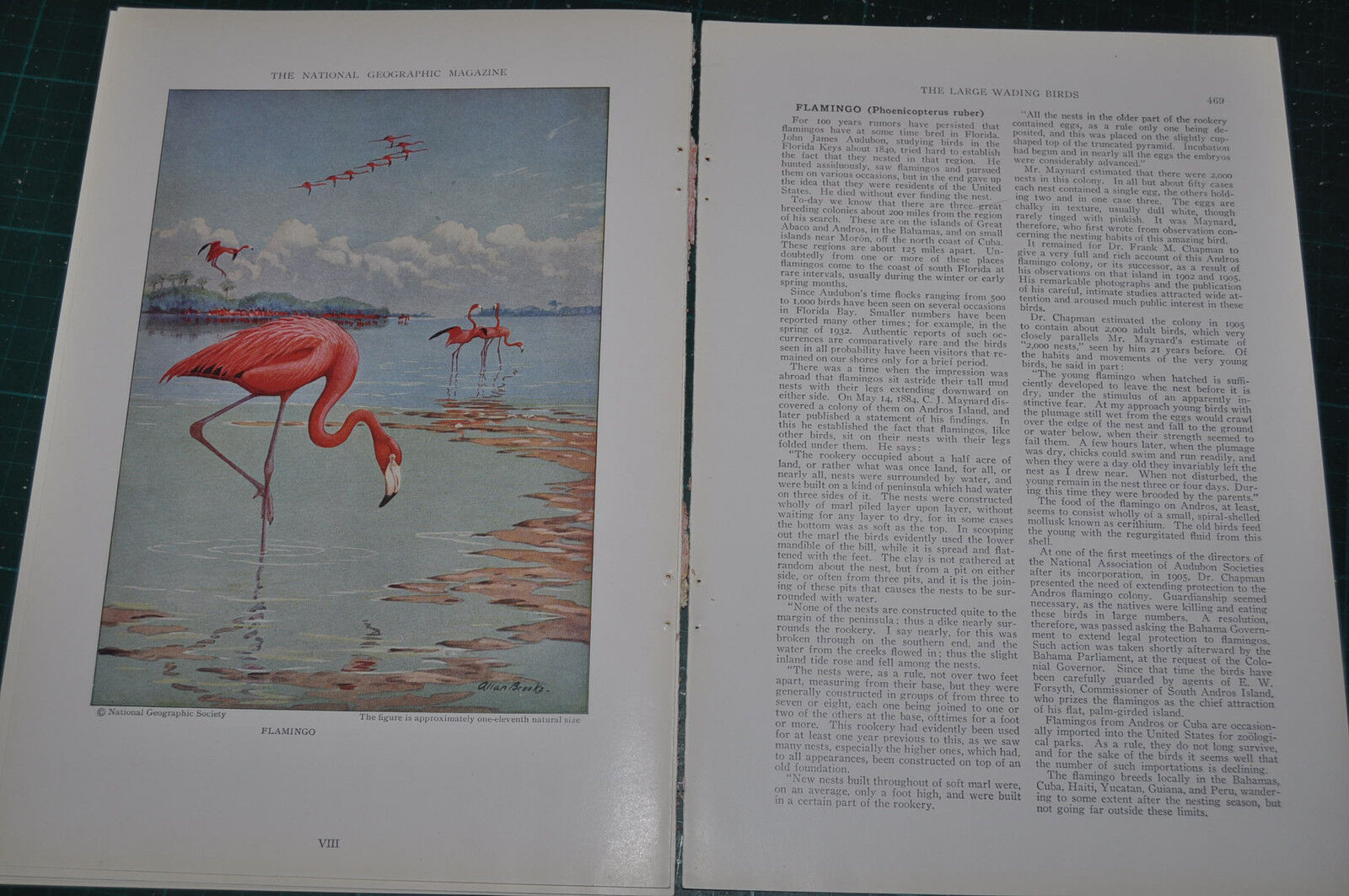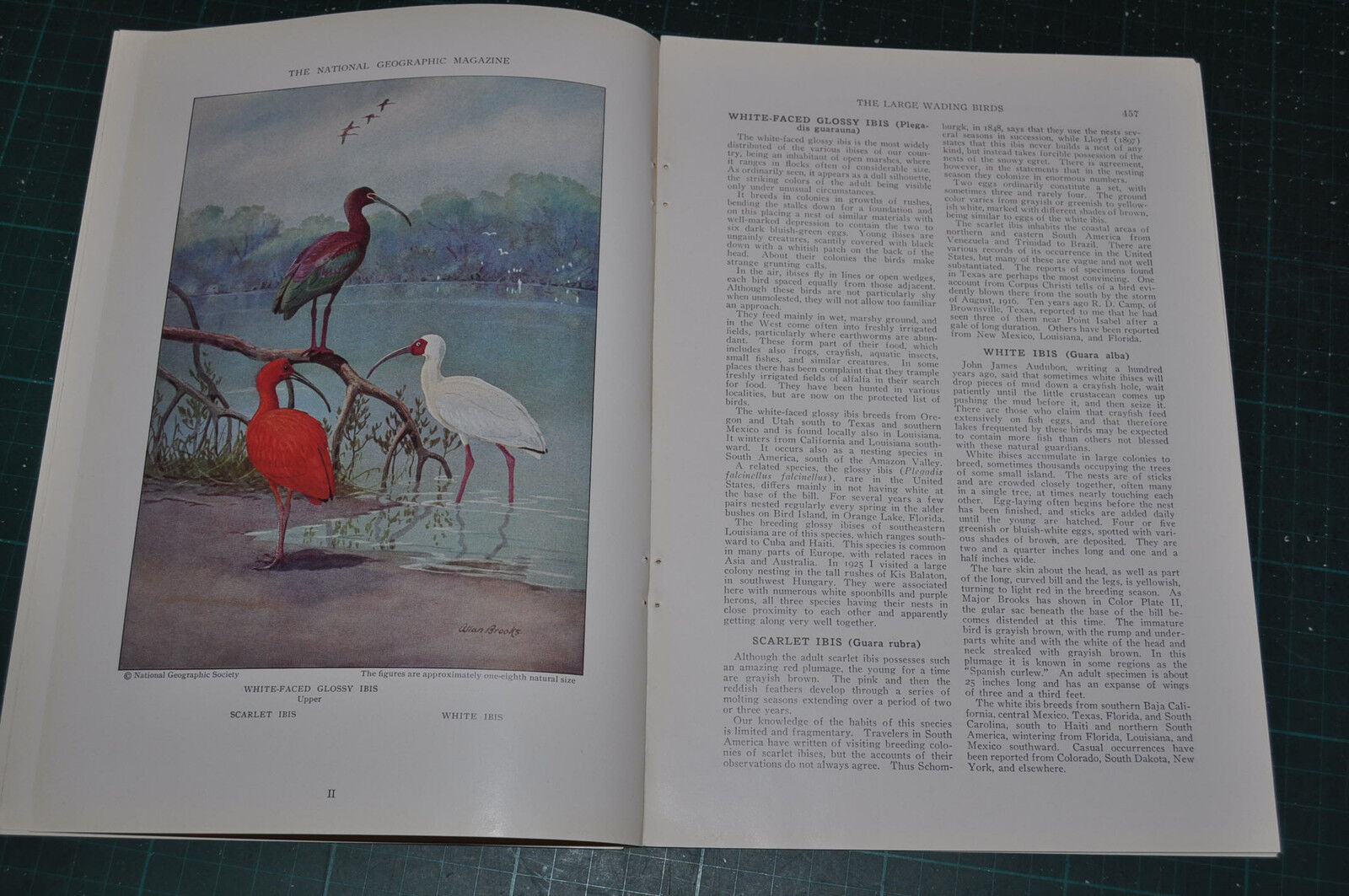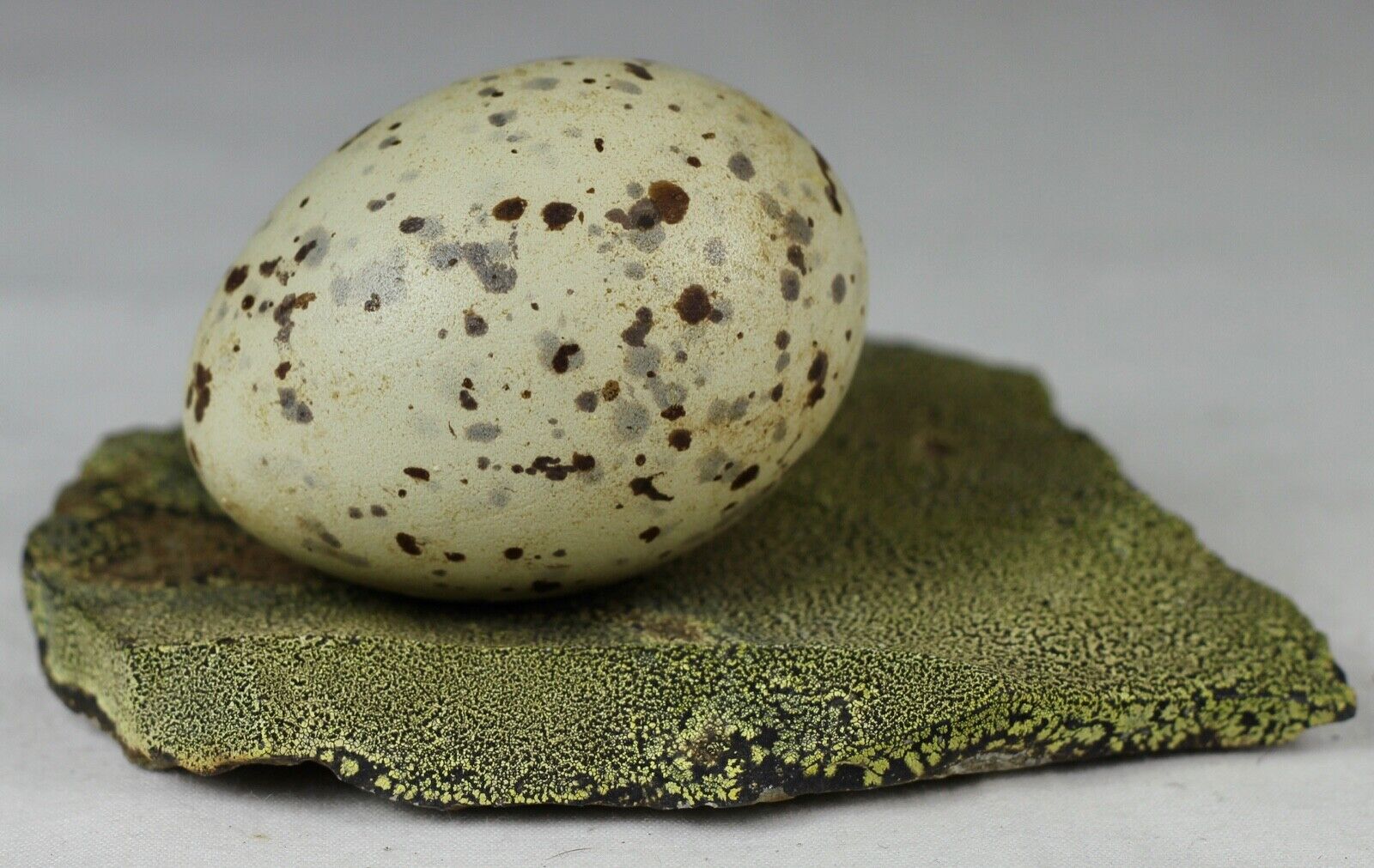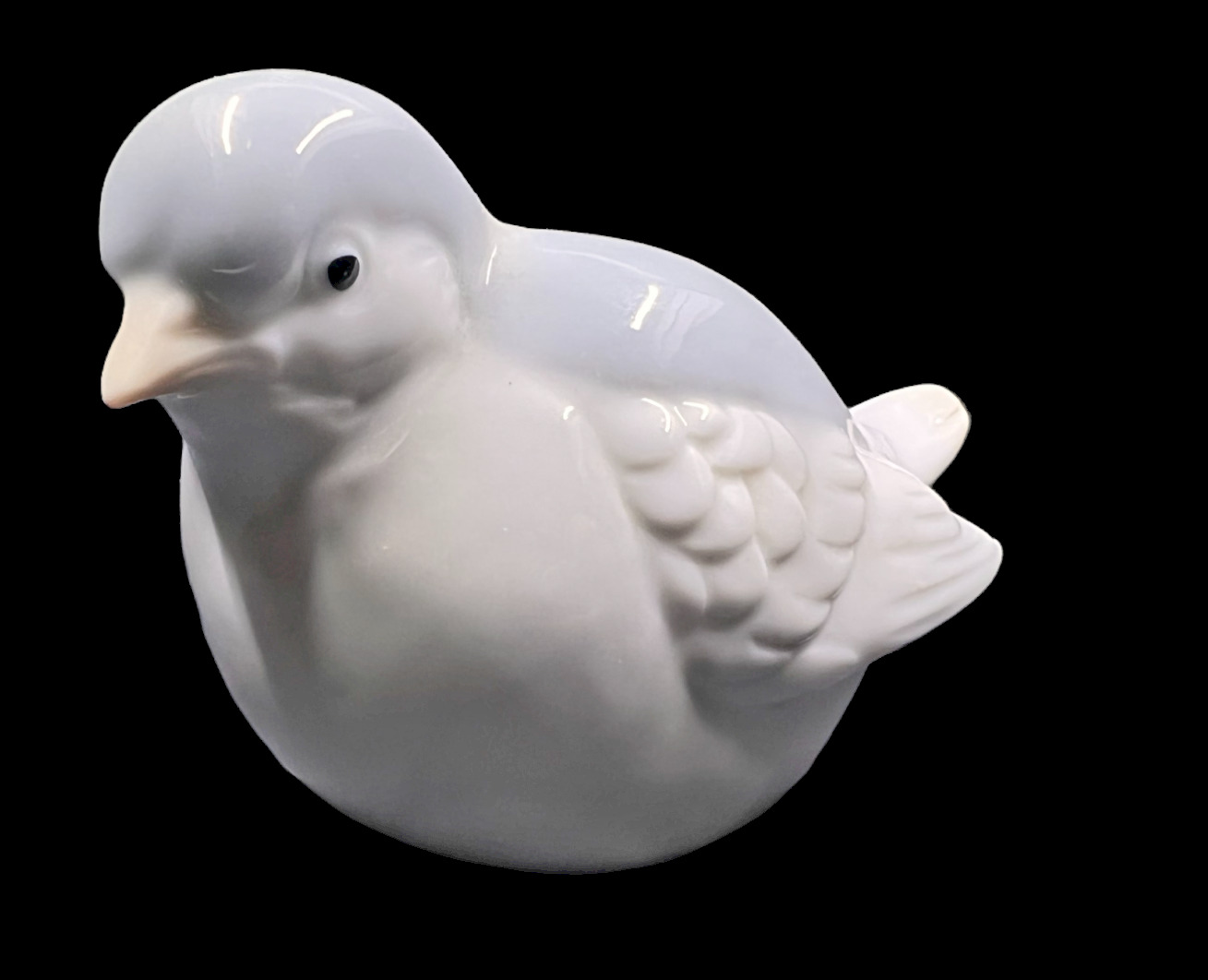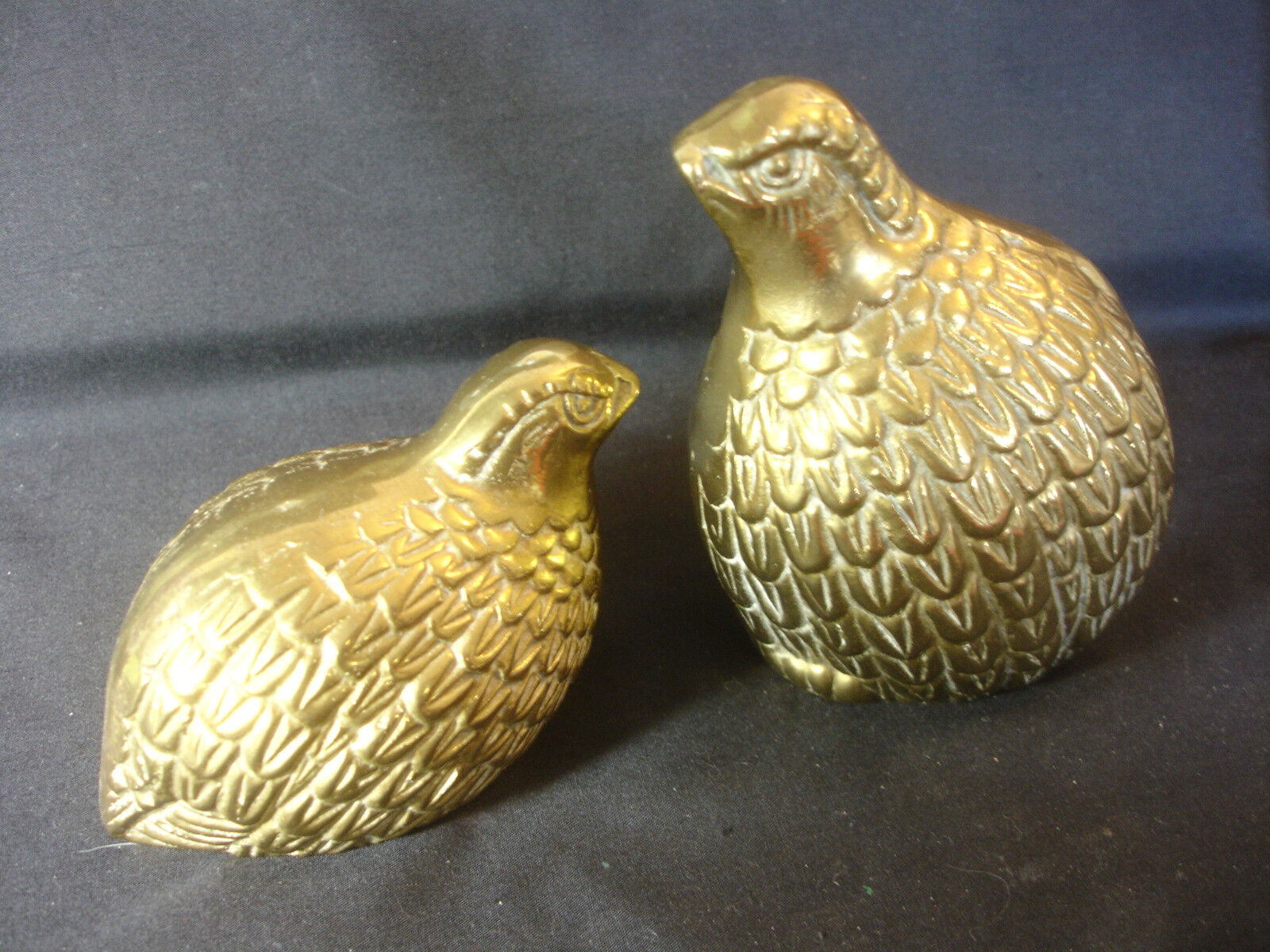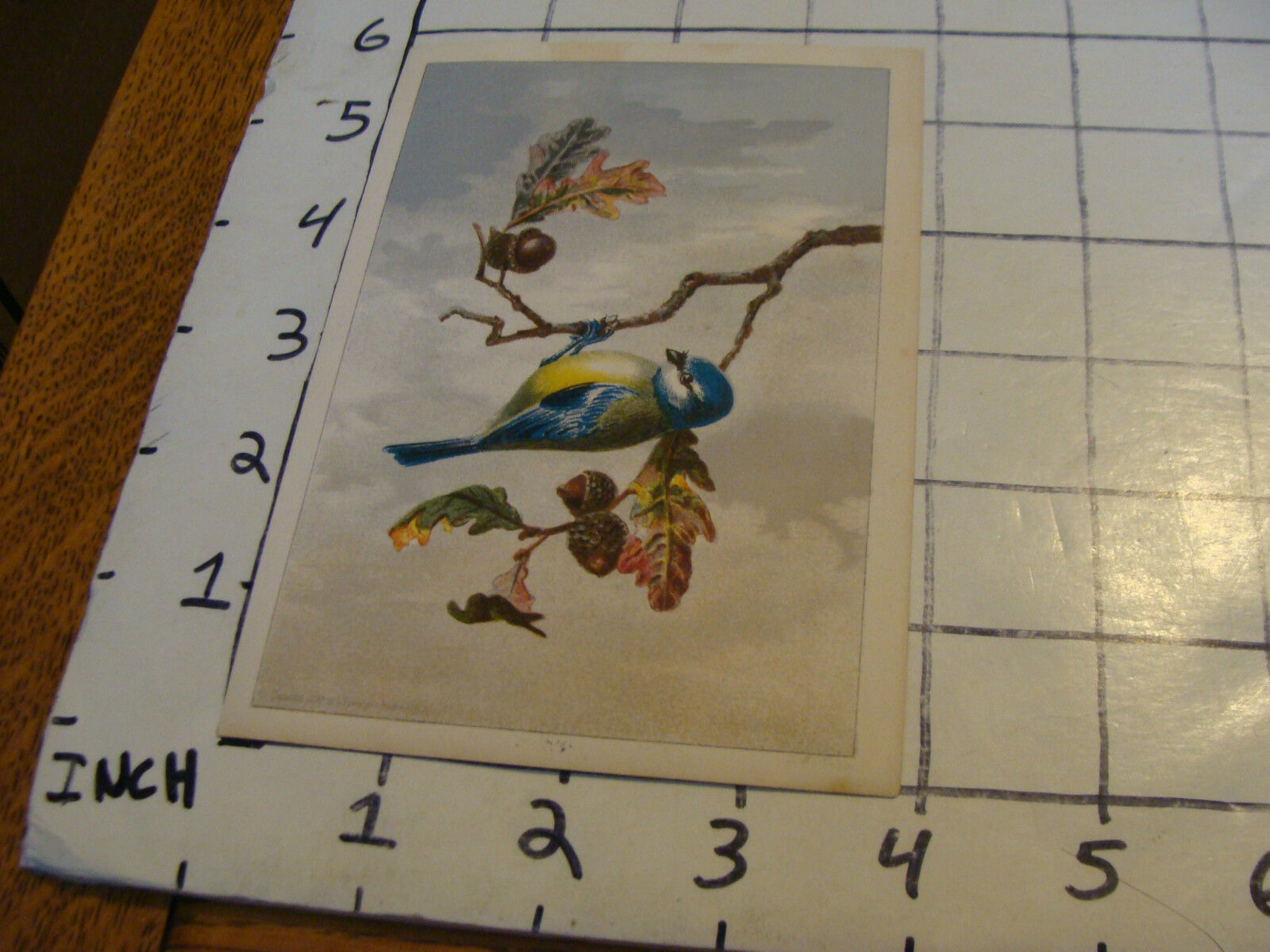-40%
1932 THE LARGE WADING BIRDS magazine article, info, color art, flamingos etc
$ 4.26
- Description
- Size Guide
Description
Selling is a 1932 magazine article about:LARGE WADING BIRDS
Title: THE LARGE WADING BIRDS
Author: T. Gilbert Pearson, President of the National Association of Audubon Societies
Paintings by Maj. Allan Brooks
Subtitled " Long Legs and Remarkable Beaks, as Well as Size, Form, and Color, Distinguish the Herons, Ibises, and Flamingos "
Quoting the first page "Haunting the solitudes of the marshlands, the tule regions of the West, the winding streams and muskegs of the North, and the moss-hung cypress swamps of the South, are found those birds we may call the large waders. Their size, their grace, the snowy whiteness of some, the striking colors of others, their unusual forms and attitudes, immediately arrest the attention.
Their lonely surroundings enhance their appeal to the lover of the wilderness, for a glimpse of one suggests the days of the pioneer, before steam shovels dug canals that took the water from seventy million acres of our picturesque regions. Their presence brings to the imagination other forms of wild life that one might see-an otter sliding from the bank, a bright-eyed mink darting to cover, or a turtle sunning itself on a log. This environment, years ago, was the haunt of the Indian seeking the bear, the beaver, and the white-tailed deer. In fancy, these are the things I see when a heron rises and wings its way into the shadows of the swamp.
What influences in the evolution of life caused these birds to develop their long legs and remarkable beaks of varied shapes, one can only conjecture. Nature has provided them with specialized equipment that serves them well in their daily lives. Their bills are of use not only in oiling and preening their feathers, in carrying ticks for their nests, and in turning their eggs, but serve also as weapons of defense, and, when the birds are young, as hooks with which to support their weight when falling from a limb. Each species possesses a beak especially adapted for gathering the kind of food upon which it subsists. The sharp dagger of the heron spears fish, the curved bill of the ibis explores nooks and holes for crawfish, and the peculiar bill of the flamingo makes it possible to gather mollusks from the mud.
As these birds collect virtually all their food from shallow water, their long legs, bare of feathers to a point near the body, make wading easy.
Members of this group are distributed over nearly all parts of the globe, but are especially numerous in tropical and temperate zones.
This article treats of the 15 species and 11 varieties that have been found in North America from Mexico to the Arctic seas (Canada and southern Alaska). They are classified under the Order
Ciconiiformes
and are placed in four separate families.
The herons and bitterns (Family
Ardeidae
), because of their large necks and legs, bear a superficial resemblance to cranes, but are only remotely related to that group.
The storks (Family
Ciconiidae
) are distributed through the warmer parts of the earth, though only one species, the wood ibis, reaches the United States..."
7” x 10”, 30 pages, 13 B&W photos plus 8 color plates
These are pages carefully removed from an actual 1932 magazine.
32J2
Please note the flat-rate shipping for my magazine articles. Please see my other auctions and store items for more old articles, advertising pages and non-fiction books.
Click Here To Visit My eBay Store: busybeas books and ads
Thousands of advertisement pages and old articles
Anything I find that looks interesting!
Please see my other auctions for more
goodies, books and magazines.
I’ll combine wins to save on postage.
Thanks For Looking!
Luke 12: 15
Note to
CANADIAN
purchasers:
Since 2007 I've only been charging 5% GST on purchases. Thanks to a recent CRA audit I must change to the full GST/HST charge. Different provinces have different rates, though most are just 5%. My GST/HST number is 84416 2784 RT0001
